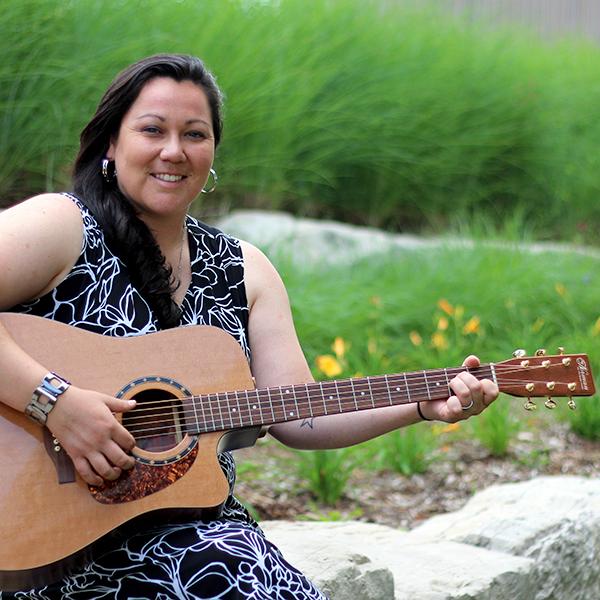
Alumni Spotlight

Alumni Spotlight
Lacey Hill has spent the last eight years telling native youth to follow their hearts, but it was only recently that she decided to heed her own advice.
A graduate of Mohawk’s Child and Youth Worker program, Hill grew up on the Six Nations reserve just south of Hamilton, Ontario. She hails from the Oneida Nation, Wolf Clan, and like many native youth she has grown up in the long shadow of the residential school system and the indelible mark it has left on her people.
It’s a story Hill can see etched in the faces of the youth she visits as the Aboriginal Recruiter for Mohawk College. Many feel hopeless, disconnected from the world and each other, and unable to see the opportunities available to them. Lacey’s job is to clear a path, to show them that education is a path to a better future.
But when she looked at her own life there was a big disconnect.
“There I was telling these kids to follow their dreams. Do what you want to do with a good mind and a strong heart. But I wasn’t doing that myself,” she says. “I realized that if I really wanted to help these kids get to where they wanted to go I needed to take my own advice.”
She knew what she needed to do, and so did everyone who knew her. For years, Hill had been hounded by friends and family who wanted her to put her musical talent to use. She had already proven herself a worthy performer. While attending Mohawk, Hill sang back-up for a popular local group called the Breeze Band. “It was the ideal gig for a college student,” she says.
The Breeze Band broke up around the time Hill graduated. There came another band after but it was short-lived, and Hill drifted away from music for a time.
Then, about two years ago, Hill started writing her own songs. In March 2013, she took a leap and took the stage at the Woodland Cultural Centre (a former residential school turned native cultural centre) in Brantford to sing three of those songs.
She was a hit, and that was the start of her solo career, she says. Less than a year later came 528. The self-produced album was Lacey’s first as a solo artist. She also started performing regularly. It’s now a year later and she has more than 60 solo performances behind her.
“I was scared. I was nervous. I was all those things. But I didn’t want to be one of those people who just talked the talk,” she says. “I wanted to do it all. I wanted to talk the talk and walk the walk. I want to show native youth that they can do and be what they want to be.”
Music is medicine, she says. It can change things for the better. “I’m just trying to make things clearer for people, so they can have forgiveness and maybe love again.”
Listen to Hill and you’ll hear a tinge of Alicia Keyes and Serena Ryder (before the latter was signed, notes Lacey). But there’s no question that Hill is her own artist, with a distinct sound and a strong message with songs like Native Girl Blues and Black Lonely Heart deeply rooted in her native culture, and reflecting the strong influences that culture has had on her.
“Nobody else can sing my song,” says Lacey. “Nobody else can write my music. Nobody else but me.”
By Sean Coffey
This story was originally published in Fall 2014 of the Mohawk Alumni In Touch magazine.
When Témo Cruz enrolled in Mohawk College’s Architectural Technology Program, he never imagined it would introduce him to the world of shipping con
Mohawk alumnus Greg Gagnon has “it”. Expertise, character and passion that have led to two high esteemed awards.
After graduating from Mohawk College's Recreation and Leisure program, the world called, and Iuliana Raducanu answered.